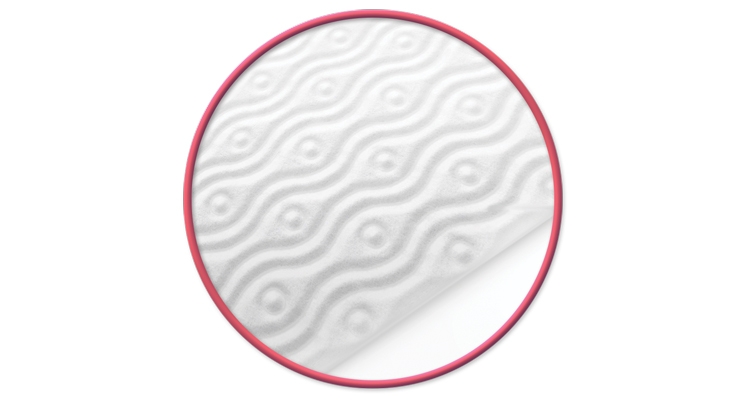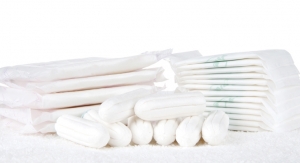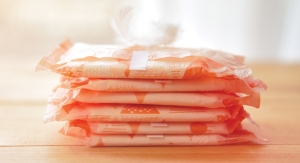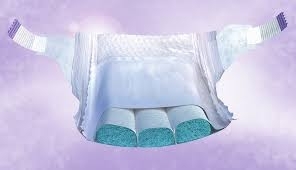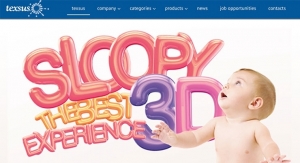Tara Olivo, Associate Editor12.07.18
The attractiveness of Eastern Europe and Russia for nonwovens makers and hygiene producers is that there is still unmet potential for growth—much more so than in Western Europe where hygiene products have mostly hit their saturation point. International players as well as local producers are popping up in countries such as Poland, the Czech Republic and Russia to stay ahead of anticipated growth in the region.
According to Svetlana Uduslivaia, head of Home & Tech Americas at Euromonitor International, Eastern Europe has a huge population, and not all of the markets are fully saturated. “There is still unmet potential in many of these markets where per capita consumption is still at a relatively low level, so there’s obviously room to grow, as opposed to Western Europe which pretty much hit its peak,” she explains. “For a lot of manufacturers within greater Europe, Eastern Europe offers greater opportunities.”
When looking at the disposable baby diaper/pants category, the per capita consumption—meaning how many diapers are used per baby annually—is higher in countries like Poland or Hungary, where over 1000 units are used per child each year, according to Euromonitor. In Russia, per capita consumption is nearly 800 units—a developed market typically shows about 1200 units per capita. Other countries that show potential for growth are Bulgaria, Georgia, Ukraine and Belarus, where per capita consumption is under 500 units annually. “The region is very diverse and it kind of moves at different paces,” Uduslivaia says.
In sanitary protection, where a developed market would typically show well over 200 units per capita, countries like Poland, Lithuania, Estonia and Czech Republic are well established, while Bulgaria, Ukraine, Romania and some other countries in the region still have room for growth, according to Euromonitor data.
Incomes have been increasing overall in the region, which has helped historically to target consumption and people turning to disposable products, Uduslivaia says. For some countries, however, there are both opportunities and risks due to political and economic instability, she adds. “There were a lot of setbacks as far as consumers in Russia are concerned, but we see that demand is recovering a little bit, so the chances are if the consumers feel better about the economy, they will probably be spending more on the products.”
At the same time, when economic troubles arise, consumers have a chance to discover private label. While companies like Procter & Gamble are pretty strong in the region, Uduslivaia notes that they have lost sales to some international competitors, private labelers and local companies.
“Private label has been making quite a bit of inroads in this market. More consumers turn to private label because it’s more affordable, and it’s also been expanding and improving its quality, so during economic troubles, such as the economic downturn in Russia in 2015, there was this moment of discovery for many to see that they have an alternative in private label.”
Drylock Expands in Europe
Belgium-based Drylock Technologies recently opened two new production sites in Europe as it invests further behind its baby diaper Magical Tubes technology and starts to further scale up operations with a new €200 million investment program. One of these new sites is in Hradek, Czech Republic, at an existing location, and the other is in central Spain, enabling Drylock to better serve its European customer base.
The expansion of the flagship Hradek site doubled up on the already existing facility. This investment included both a new production site as well as a new warehouse facility. The facility produces baby diapers and diaper pants, as well as Drylock’s full range of incontinence products. In Segovia, Spain, Drylock built a site that serves Southern European customers.
According to Bart Van Malderen, CEO and chairman of Drylock Technologies, the Czech Republic feels like the fastest growing economy in Europe today. Although, as far as its operations, Van Malderen doesn’t consider the Czech Republic as part of Eastern Europe, and doesn’t believe there are two Europes—east and west. “We don’t think in those terms anymore,” he says. “All countries in Europe have the same marketing and same sales expectations,” he says.
Drylock’s main customers are main retailers, nationally and globally, as well as institutional and leading online resellers. It supplies its innovative products to Russia, Europe, North America and Latin America, mainly.
Looking at consumer preferences in Europe, Van Malderen says shoppers want softness, especially in baby diapers, and this trend is also being seen in Russia, where Drylock operates two factories. “On the other hand, we have our innovation, the Magical Tubes, which has been a really big thing for us, ” he adds.
Drylock is still in the process of converting all of its customers to the tubes technology, which offers faster acquisition and better distribution. Drylock is producing this type of product in Russia and Europe, as well as in South America, where it recently acquired the Brazilian personal care companies Mardam and Capricho. In addition to baby diapers, the Magical Tubes technology is also in the process of being applied in Drylock’s adult incontinence products.
Texsus Invests in Poland
In August, Texsus S.p.A., the Italian-based nonwovens and frontal tape manufacturer, announced it was investing in a new site in Poland. The project is aimed at shifting Texsus’ influence towards the heart of Europe, ready to quickly supply its long-standing customers, as well as the newly developing markets, with outstanding quality products for baby care, feminine hygiene items and adult incontinence products, assuring short lead times and logistic flexibility, according to the company.
The complex, valued at more than €30 million, will produce air-through-bonded nonwovens for the hygiene market. The plant will occupy approximately 50% of the 50,000 square-meter facility. Equipped with state-of-the-art, air-through bonded and spooling lines, the site will allow Texsus to expand its overall nonwovens production capacity by at least 50% and its spooling breadth to 100% of its nonwovens volume output.
While Texsus’ headquarters and largest plant will remain in Tuscany, Italy, as the heart of the group for the manufacturing of nonwoven acquisition distribution layer and frontal tape, the new Polish plant is expected to be up and running by the first quarter of 2020.
“Set in the heart of Europe, Poland represents the ideal supply hub to reach our central, northern and eastern partners,” says Barbara Bulleri, sales & marketing director, Texsus. “Additionally, great infrastructures and qualified personnel make this country the ideal growth choice for our company.”
Although the Eastern European market is still going through the recovery process from the economic crisis, and continues to be plagued by financial instability coupled with a low birth rate, the potential for growth is unmatched, according to Bulleri. “So much so that all major baby diaper and disposable hygienic products manufacturers are moving to address it,” she adds. “It’s interesting to note that private label producers are gaining market share at the expenses of the brands.”
In terms of what Eastern European customers are looking for, Bulleri says they want good quality products at an affordable price point. And today, imports of “Japanese style” diapers is decreasing in favor of local or European-made products, she says.
Violeta Strives for Regional Leadership
Violeta, a local hygiene competitor based in the southern part of Eastern Europe, has grown its business throughout its history.
Founded in 1990, Violeta is a hygiene manufacturer and distributor. The company, based in Grude, Bosnia and Herzegovina, is also the exclusive distributor for brands such as Ferrero, Barilla, Ehrmann, Paladin, Evian, Frico.
“Besides long-term business partnerships with these companies, there is a lot of reliance between us,” says Violeta’s owner Petar Corluka. “Through these years, in a lot of things, they have been role models for us. Today we can proudly say that we equally learn from each other which results in continuous growth for both sides.”
In 2002, Violeta’s story began to evolve. It was during this year that the company started its own production, first installing toilet paper and tissue lines. The following year the company added a table napkin line, and in 2005 decided to begin producing baby diapers and wet wipes. In 2007, a sanitary napkin machine was installed.
The company expanded in 2015 to a new site in Dubrava, producing home care products such as liquid laundry detergent and dishwashing detergent, and later added a Zuiko diaper machine at the site with a speed of 800 pieces per minute.
“Each year something new was installed, and it’s been a quite dynamic and prosperous 20 years,” says Corluka. “We say prosperous because today, Violeta brand awareness is quite strong in the entire ex-Yugoslavia market. Our vision is to become the regional number one in all products and services that we are offering, and we worked and are still working hard to accomplish that on each category.”
In 2015, the Violeta launched redesigned baby diapers with completely new air-dry technology. “It was the premiere of Japanese technology in Europe and the introduction of unique Japanese softness,” says Corluka, adding that the company has plans to expand this portfolio in the future.
Violeta’s main market is the former Yugoslavia region including Croatia, Bosnia and Herzegovina, Slovenia, Serbia, Monte Negro, Kosovo, Macedonia and Hungary. “This part of Europe with its transitional economy has a lot to offer, especially to foreign investors,” Corluka explains. “Since the market is less saturated, it is in need of some products and services which are not there yet.”
When describing the countries in this region of Europe, Corluka says they are similar, yet also different. “Depending on the overall influences and economical stability there are countries where parents are more premium brand oriented and yet others where value for money is the main purchasing driver. Western countries like Slovenia and Croatia are more open to new trends and they are doors to eastern countries such as Bosnia and Herzegovina, Serbia and Monte Negro. When you look at Kosovo and Macedonia, there are numerous brands, especially in the wet wipe category, and most of them are from Turkey.”
According to Svetlana Uduslivaia, head of Home & Tech Americas at Euromonitor International, Eastern Europe has a huge population, and not all of the markets are fully saturated. “There is still unmet potential in many of these markets where per capita consumption is still at a relatively low level, so there’s obviously room to grow, as opposed to Western Europe which pretty much hit its peak,” she explains. “For a lot of manufacturers within greater Europe, Eastern Europe offers greater opportunities.”
When looking at the disposable baby diaper/pants category, the per capita consumption—meaning how many diapers are used per baby annually—is higher in countries like Poland or Hungary, where over 1000 units are used per child each year, according to Euromonitor. In Russia, per capita consumption is nearly 800 units—a developed market typically shows about 1200 units per capita. Other countries that show potential for growth are Bulgaria, Georgia, Ukraine and Belarus, where per capita consumption is under 500 units annually. “The region is very diverse and it kind of moves at different paces,” Uduslivaia says.
In sanitary protection, where a developed market would typically show well over 200 units per capita, countries like Poland, Lithuania, Estonia and Czech Republic are well established, while Bulgaria, Ukraine, Romania and some other countries in the region still have room for growth, according to Euromonitor data.
Incomes have been increasing overall in the region, which has helped historically to target consumption and people turning to disposable products, Uduslivaia says. For some countries, however, there are both opportunities and risks due to political and economic instability, she adds. “There were a lot of setbacks as far as consumers in Russia are concerned, but we see that demand is recovering a little bit, so the chances are if the consumers feel better about the economy, they will probably be spending more on the products.”
At the same time, when economic troubles arise, consumers have a chance to discover private label. While companies like Procter & Gamble are pretty strong in the region, Uduslivaia notes that they have lost sales to some international competitors, private labelers and local companies.
“Private label has been making quite a bit of inroads in this market. More consumers turn to private label because it’s more affordable, and it’s also been expanding and improving its quality, so during economic troubles, such as the economic downturn in Russia in 2015, there was this moment of discovery for many to see that they have an alternative in private label.”
Drylock Expands in Europe
Belgium-based Drylock Technologies recently opened two new production sites in Europe as it invests further behind its baby diaper Magical Tubes technology and starts to further scale up operations with a new €200 million investment program. One of these new sites is in Hradek, Czech Republic, at an existing location, and the other is in central Spain, enabling Drylock to better serve its European customer base.
The expansion of the flagship Hradek site doubled up on the already existing facility. This investment included both a new production site as well as a new warehouse facility. The facility produces baby diapers and diaper pants, as well as Drylock’s full range of incontinence products. In Segovia, Spain, Drylock built a site that serves Southern European customers.
According to Bart Van Malderen, CEO and chairman of Drylock Technologies, the Czech Republic feels like the fastest growing economy in Europe today. Although, as far as its operations, Van Malderen doesn’t consider the Czech Republic as part of Eastern Europe, and doesn’t believe there are two Europes—east and west. “We don’t think in those terms anymore,” he says. “All countries in Europe have the same marketing and same sales expectations,” he says.
Drylock’s main customers are main retailers, nationally and globally, as well as institutional and leading online resellers. It supplies its innovative products to Russia, Europe, North America and Latin America, mainly.
Looking at consumer preferences in Europe, Van Malderen says shoppers want softness, especially in baby diapers, and this trend is also being seen in Russia, where Drylock operates two factories. “On the other hand, we have our innovation, the Magical Tubes, which has been a really big thing for us, ” he adds.
Drylock is still in the process of converting all of its customers to the tubes technology, which offers faster acquisition and better distribution. Drylock is producing this type of product in Russia and Europe, as well as in South America, where it recently acquired the Brazilian personal care companies Mardam and Capricho. In addition to baby diapers, the Magical Tubes technology is also in the process of being applied in Drylock’s adult incontinence products.
Texsus Invests in Poland
In August, Texsus S.p.A., the Italian-based nonwovens and frontal tape manufacturer, announced it was investing in a new site in Poland. The project is aimed at shifting Texsus’ influence towards the heart of Europe, ready to quickly supply its long-standing customers, as well as the newly developing markets, with outstanding quality products for baby care, feminine hygiene items and adult incontinence products, assuring short lead times and logistic flexibility, according to the company.
The complex, valued at more than €30 million, will produce air-through-bonded nonwovens for the hygiene market. The plant will occupy approximately 50% of the 50,000 square-meter facility. Equipped with state-of-the-art, air-through bonded and spooling lines, the site will allow Texsus to expand its overall nonwovens production capacity by at least 50% and its spooling breadth to 100% of its nonwovens volume output.
While Texsus’ headquarters and largest plant will remain in Tuscany, Italy, as the heart of the group for the manufacturing of nonwoven acquisition distribution layer and frontal tape, the new Polish plant is expected to be up and running by the first quarter of 2020.
“Set in the heart of Europe, Poland represents the ideal supply hub to reach our central, northern and eastern partners,” says Barbara Bulleri, sales & marketing director, Texsus. “Additionally, great infrastructures and qualified personnel make this country the ideal growth choice for our company.”
Although the Eastern European market is still going through the recovery process from the economic crisis, and continues to be plagued by financial instability coupled with a low birth rate, the potential for growth is unmatched, according to Bulleri. “So much so that all major baby diaper and disposable hygienic products manufacturers are moving to address it,” she adds. “It’s interesting to note that private label producers are gaining market share at the expenses of the brands.”
In terms of what Eastern European customers are looking for, Bulleri says they want good quality products at an affordable price point. And today, imports of “Japanese style” diapers is decreasing in favor of local or European-made products, she says.
Violeta Strives for Regional Leadership
Violeta, a local hygiene competitor based in the southern part of Eastern Europe, has grown its business throughout its history.
Founded in 1990, Violeta is a hygiene manufacturer and distributor. The company, based in Grude, Bosnia and Herzegovina, is also the exclusive distributor for brands such as Ferrero, Barilla, Ehrmann, Paladin, Evian, Frico.
“Besides long-term business partnerships with these companies, there is a lot of reliance between us,” says Violeta’s owner Petar Corluka. “Through these years, in a lot of things, they have been role models for us. Today we can proudly say that we equally learn from each other which results in continuous growth for both sides.”
In 2002, Violeta’s story began to evolve. It was during this year that the company started its own production, first installing toilet paper and tissue lines. The following year the company added a table napkin line, and in 2005 decided to begin producing baby diapers and wet wipes. In 2007, a sanitary napkin machine was installed.
The company expanded in 2015 to a new site in Dubrava, producing home care products such as liquid laundry detergent and dishwashing detergent, and later added a Zuiko diaper machine at the site with a speed of 800 pieces per minute.
“Each year something new was installed, and it’s been a quite dynamic and prosperous 20 years,” says Corluka. “We say prosperous because today, Violeta brand awareness is quite strong in the entire ex-Yugoslavia market. Our vision is to become the regional number one in all products and services that we are offering, and we worked and are still working hard to accomplish that on each category.”
In 2015, the Violeta launched redesigned baby diapers with completely new air-dry technology. “It was the premiere of Japanese technology in Europe and the introduction of unique Japanese softness,” says Corluka, adding that the company has plans to expand this portfolio in the future.
Violeta’s main market is the former Yugoslavia region including Croatia, Bosnia and Herzegovina, Slovenia, Serbia, Monte Negro, Kosovo, Macedonia and Hungary. “This part of Europe with its transitional economy has a lot to offer, especially to foreign investors,” Corluka explains. “Since the market is less saturated, it is in need of some products and services which are not there yet.”
When describing the countries in this region of Europe, Corluka says they are similar, yet also different. “Depending on the overall influences and economical stability there are countries where parents are more premium brand oriented and yet others where value for money is the main purchasing driver. Western countries like Slovenia and Croatia are more open to new trends and they are doors to eastern countries such as Bosnia and Herzegovina, Serbia and Monte Negro. When you look at Kosovo and Macedonia, there are numerous brands, especially in the wet wipe category, and most of them are from Turkey.”

